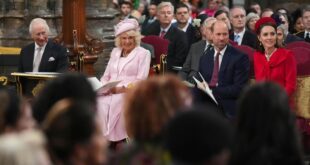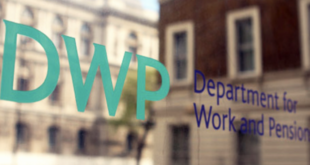The Postal Workers Rank-and-File Committee calls for a Yes vote in the ballot on political funding in the Communication Workers Union (CWU). Our call is against the campaign by CWU General Secretary Dave Ward and his cronies on the executive to promote Sir Keir Starmer’s Labour Party as a friend of workers.
We oppose our union subs being used to fund the big business, pro-war Labour Party. But the ballot is to decide whether the union can—under terms set by the Trade Union Act—legally set aside funds for any political purposes.
Ward set out the reason for the postal ballot, which runs from September 24-October 15, in a Letter to Branches on June 24:
“In accordance with the Trade Union and Labour Relations (Consolidated) Act 1992 (as amended), the Communication Workers Union is required to hold a Political Fund Review Ballot at least every ten years, in order that the union can retain its political fund. The ballot will give members the opportunity to vote on whether the union should be able to spend money for political purposes. The law says that the union must have a fund to do this.”
This is Ward’s bloodless description of vicious state powers to suppress workers’ trade union and political rights. The 1992 Act brought together a battery of Tory anti-strike laws introduced by the Thatcher and Major governments between 1981 and 1992. These laws were retained under the Blair-Brown Labour governments and were never challenged by the Trades Union Congress or its affiliated trade unions.
Our call for a Yes vote is to oppose state control over union funds. These should be controlled by the membership. This means a rank-and-file insurgency to challenge the domination of the CWU’s unaccountable bureaucracy. Ward can tell us nothing about defending our jobs, terms and conditions—his only role has been to sacrifice them to protect the profits and dividends of Royal Mail.
Workers’ anger toward Labour
Ward and other officials have seized on the political funding ballot to promote their alliance with the Labour Party. A 40-minute video filmed at Labour’s Annual Conference, presented by CWU Head of Communications Chris Webb, paraded various Labour MPs as allies. It included a fawning interview with Darren Jones MP. The CWU claimed on X/Twitter that Jones “stood up for workers’ rights in the Royal Mail disputes, holding power to account. The political fund made this possible, giving us the strength to campaign for change.”

Loading Tweet …
This is the same Darren Jones who celebrated last year’s sellout national agreement authored by the CWU and Royal Mail executives at ACAS that unleashed the biggest attacks on postal workers in history. Jones attended the reps meeting called to rubberstamp the deal and was given a standing ovation.
Postal workers have not swallowed this political garbage and have reacted to the ballot with an outpouring of comments on the union’s Facebook page attacking the CWU’s support for Labour:
“So let’s get this straight, the CWU still want it’s members to still support and financially contribute to this Labour government when the first thing they actually did was cancel the fuel allowance leaving pensioners worrying whether they can heat or eat… but have not touched the super-rich, big corporations that pay zero Tax…”
“I’ve been a postie for 45 years now retired and have always supported the political levy but not for this right wing lying so called Labour government.”
“as far as Darren Jones [is concerned] if he voted to take winter payments off pensioners I don’t think the union should be hailing him as a friend of ours.”
“Vote no as Keir’s Labour hates workers and pensioners.”
These statements reflect the sentiments of millions of workers. Labour was elected to office three months ago off the back of a wave of anti-Tory sentiment on the lowest popular vote for an incoming government in history. Its support has since plunged further.
Ward now emphasises: “The political fund isn’t about the Labour Party—it’s about is having a voice to support and defend our members jobs.” But such disclaimers cannot disguise the CWU’s promotion of the Labour Party that will see many workers vote No to the political fund in disgust.
The CWU is one of 11 unions still affiliated to the Labour Party and Ward spoke at Labour’s annual conference in September as a loyal defender of Starmer. In 2022 (the most recent year for which accounts are available) the CWU spent £1,309,879 on political donations and affiliations. Labour Party central and regional affiliation fees amounted to £460,700 alongside unspecified “donations” of £152,850, with £17,500 listed under “Parliamentary Panel” and £1,500 as “General Election”.
Income to the political fund from members’ dues was £1,175,192 in 2022 on top of reserve political funds of £2,586,742. This means the bulk of political funds raised went into Labour’s coffers. The same union executive which denied Royal Mail and BT workers strike pay in 2022-23, has gifted millions to Starmer’s party that supports genocide in Gaza and which has declared war on the working class, including children and pensioners. Labour’s Business Secretary Jonathan Reynolds has voiced “in-principle” support for Royal Mail’s takeover by billionaire Daniel Kretinsky.
The way forward
Speaking on the sidelines at Labour Party Conference, CWU official Karen Rose claimed “the trade unions are holding the Labour government to account”, alluding to the toothless non-binding resolution moved at the conference by the CWU and Unite calling for a reversal of cuts to the winter fuel allowance for pensioners. She touted Labour’s promised Employment Rights Bill, despite acknowledging that “none of us have seen the words”. Labour has already ditched its pledges to end zero-hour contracts and fire-and-rehire.
Rose openly defended Labour’s pro-business programme, justifying the billions in cuts announced by Chancellor Rachel Reeves. She declared: “Labour have got the job of ensuring that the economy is stabilised… it has to be cognisant of the fact that there’s this great big black hole.”
Rose stated this would mean “tough choices”, complaining that “people always want the cuts to fall elsewhere”.
In her efforts to promote the union’s political fund, Rose invoked the trade unions’ historic relationship to the Labour Party, citing the creation of the National Health Service as an example of the way in which unions were active in “bringing forward legislation that makes things better for working people.”
Her comments only underscore the transformed character of Labour and the unions. While the Labour Party was established in 1900 by the trade unions to introduce parliamentary reforms under capitalism, it ditched social reformism decades ago. Under Blair, Labour declared it was “intensely relaxed about people getting filthy rich”, repudiated Clause 4 (committing the party to the common ownership of the means of production, distribution and exchange) and continued the free-market assault begun by Thatcher.
Today’s Labour government is way to the right of Blair’s. It has declared war on the NHS, promoting privatisation and demanding wage restraint in the name of “fiscal discipline” while handing out billions in corporate tax breaks to billionaires and to fund massive increases in military spending for global war. The trade union leaders fully back the Labour government’s clampdown on protests and strikes to facilitate this class war at home and abroad.
The organisations built by the working class more than a century ago have been transformed into direct instruments of the corporate and financial elite. This is the real issue that must be resolved by workers.
Rank-and-file committees must be established at every workplace to break the domination of the bureaucracy and its control over our dues. These must unite workers across sectional lines, based on a political strategy that challenges the dictatorship of the capitalist oligarchy, placing the needs of the working class before corporate profit.
Postal workers: Make your voice heard! Tell us about conditions in your workplace
All submissions will be kept anonymous
Source link



